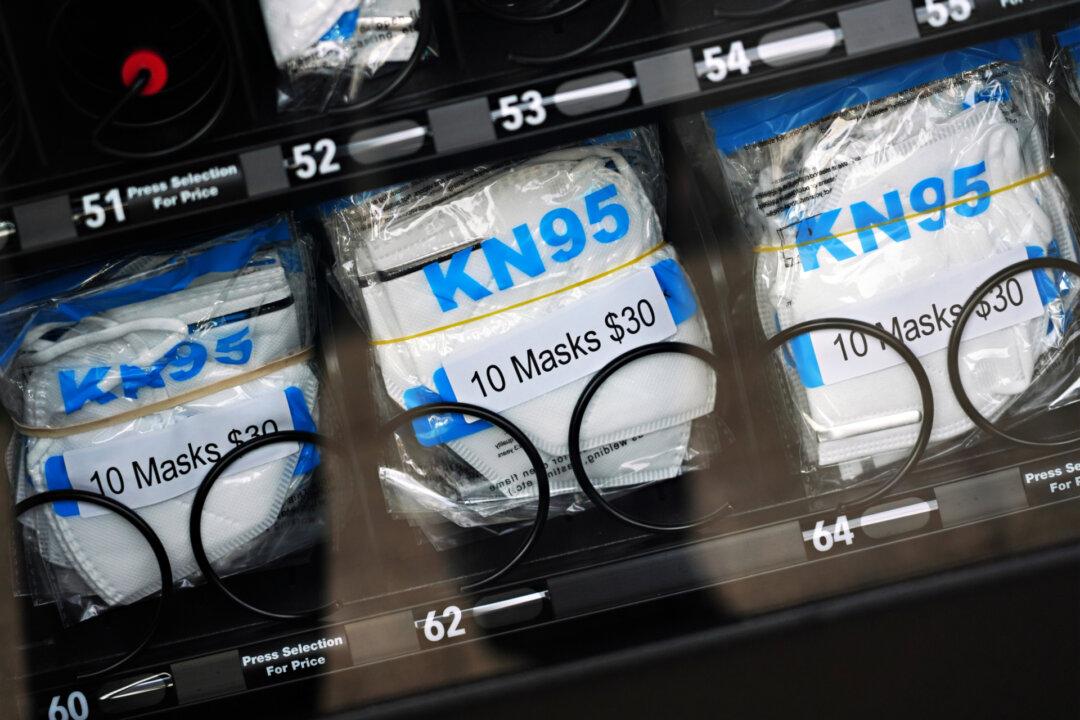Up to 70 percent of KN95 masks imported from China don’t meet U.S. health standards and could endanger health care workers and patients, an independent medical product evaluation found.
As the name suggests, KN95 masks should be capable of filtering out 95 percent of hazardous particles in the air. The masks, which aren’t officially certified by U.S. authorities, are the Chinese version of the N95 model.





